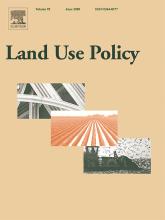Resource information
Managing forests sustainably for multiple objectives requires multi-faceted socio-technical knowledge. This study explores the challenges of using knowledge within social and technical knowledge systems in decision-making about and the management of privately-owned forests in Finland. We define the technical knowledge system as the collection of standardized forms of knowledge and the IT systems supporting their storage and distribution. The social knowledge system consists of people who use and generate knowledge, as well as the societal norms that regulate their actions. We draw from two data sources: focus group discussions with representatives of forest and environmental stakeholders (n = 60) and notes from forest professionals’ (n = 35) training workshops. Theories of knowledge management and knowledge lifecycle frame the analysis. We identify problems with knowledge use that are related to the functioning of both the technical and social knowledge systems, as well as to the mismatch of these systems. The results show many points of discontinuity in the flow of knowledge within and between forest-related actors and organizations. To enhance the knowledge flows, more attention must be paid to i) social structures that guide the ways in which knowledge is used and validated in the organizations, and ii) a more balanced manner to produce and co-utilize different forms of knowledge.


